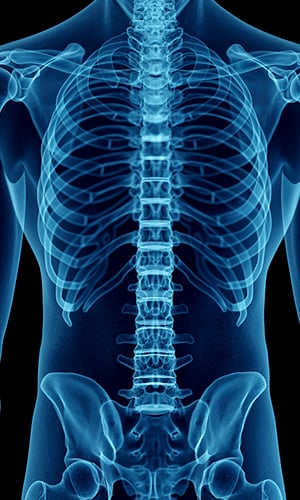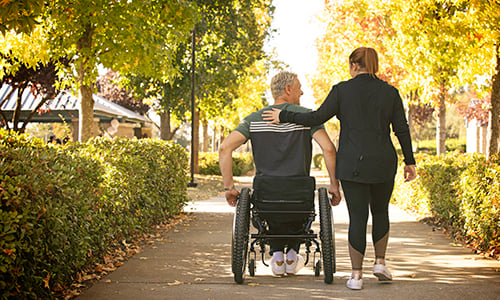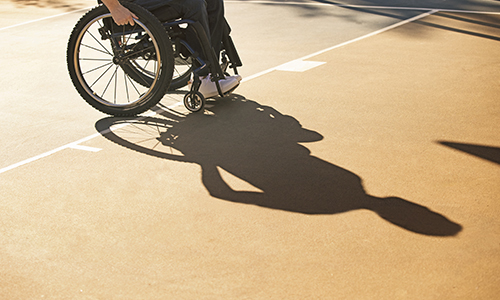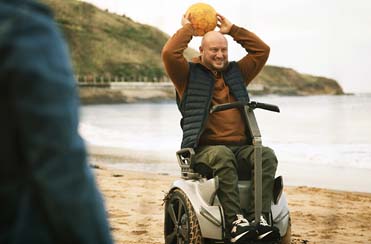Spinal cord injury can have a devastating effect on one’s life. The benefits of being able to connect with and learn from others who share similar circumstances are immeasurable.
As someone who has recently suffered a spinal cord injury, you can expect your life to change in many ways, most of which will not be familiar to you. Having a trusted source of information and guidance, someone who has been through the experience themselves, can be of tremendous value to any new SCI patient.
We call them “peer mentors.”
They are spinal cord injury survivors who have already faced the uncertainties you face, the challenges you meet every day. They are willing to share what they’ve learned in hopes of making your own transition to a life with SCI as smooth as possible. Yes, doctors, nurses and therapists do some of this work, too, but the power of a peer mentor with whom you connect – is that you both see the world through the eyes of someone who’s life has been forever altered by spinal cord injury.
Because peer mentors have been through what you are going through, they are good listeners. They understand the difficulties you face physically, and emotionally. They empathize with the anger or frustration you may be experiencing because they’ve been there, too. In sharing their own experiences, a peer mentor can help you learn how to confront your own feelings, emotions and difficulties in the critical time after your injury has occurred.
Peer mentors, too, can help prevent future medical complications which may arise due to your spinal cord injury. In the weeks directly after sustaining an SCI, patients’ bodies change in such ways that other serious, more life-threatening problems such as urinary tract infections, autonomic dysreflexia, pressure sores and others may occur. A peer mentor can talk through these issues and advise you on what steps they took to avoid such complications.
Living your own healthiest life, even with a spinal cord injury, is key to your happiness and longevity. But as a new spinal cord injury sufferer, you may not be informed as to how or where to remain active with your unique condition. Again, leaning on their own knowledge and experience, a peer mentor can help you find exercise facilities, guide you through doctor recommended exercises, or even introduce you to activities such as tennis, basketball, or other sports – which you may have not thought possible due to your injury.
One thing to keep in mind is that every peer mentor or peer mentoring relationship is different. Some may be solely in person. Others may be by phone or online. Still others, a mixture of all of the these. The important thing is to connect with a peer mentor with whom you feel “a good fit”. In addition to finding a mentor who is reliable, trustworthy and knowledgeable, you should seek someone who encourages your active participation in the relationship and understands the importance of you setting goals as part of your rehabilitation process.
Remember, too, a peer mentor, while extremely helpful, is not a medical professional. Which is why any peer mentor relationship begins with a discussion with your rehabilitation program professionals about your needs, interests and goals.









